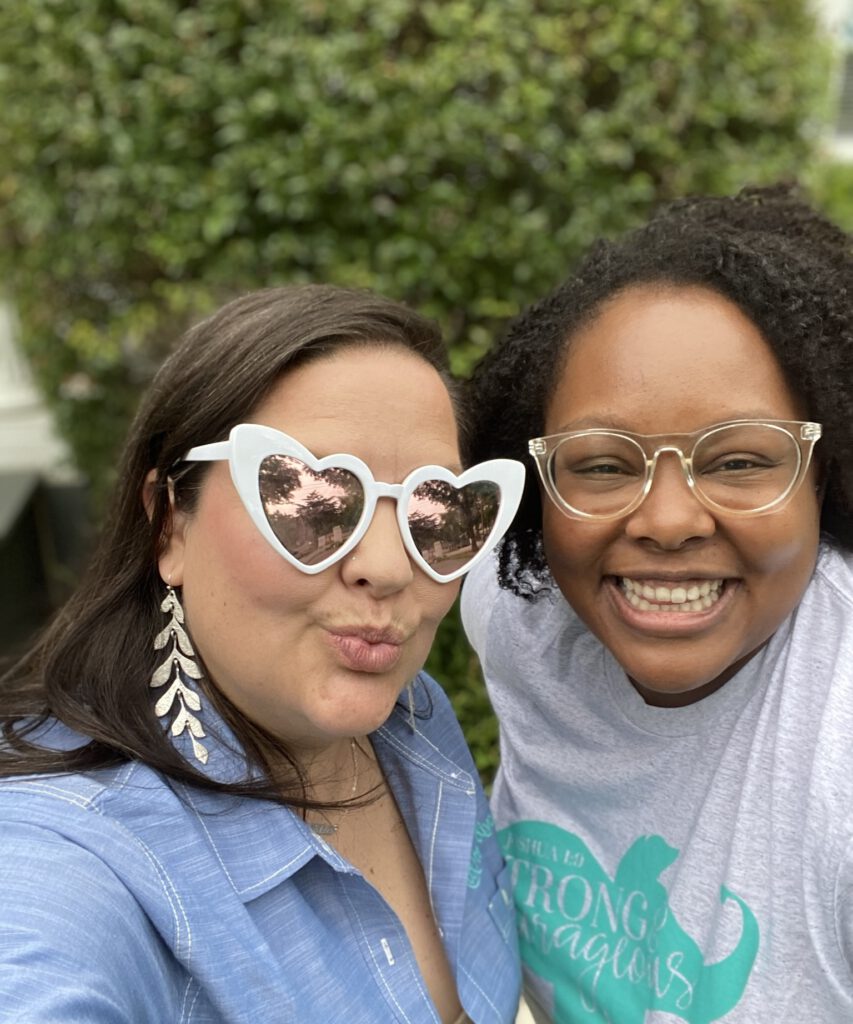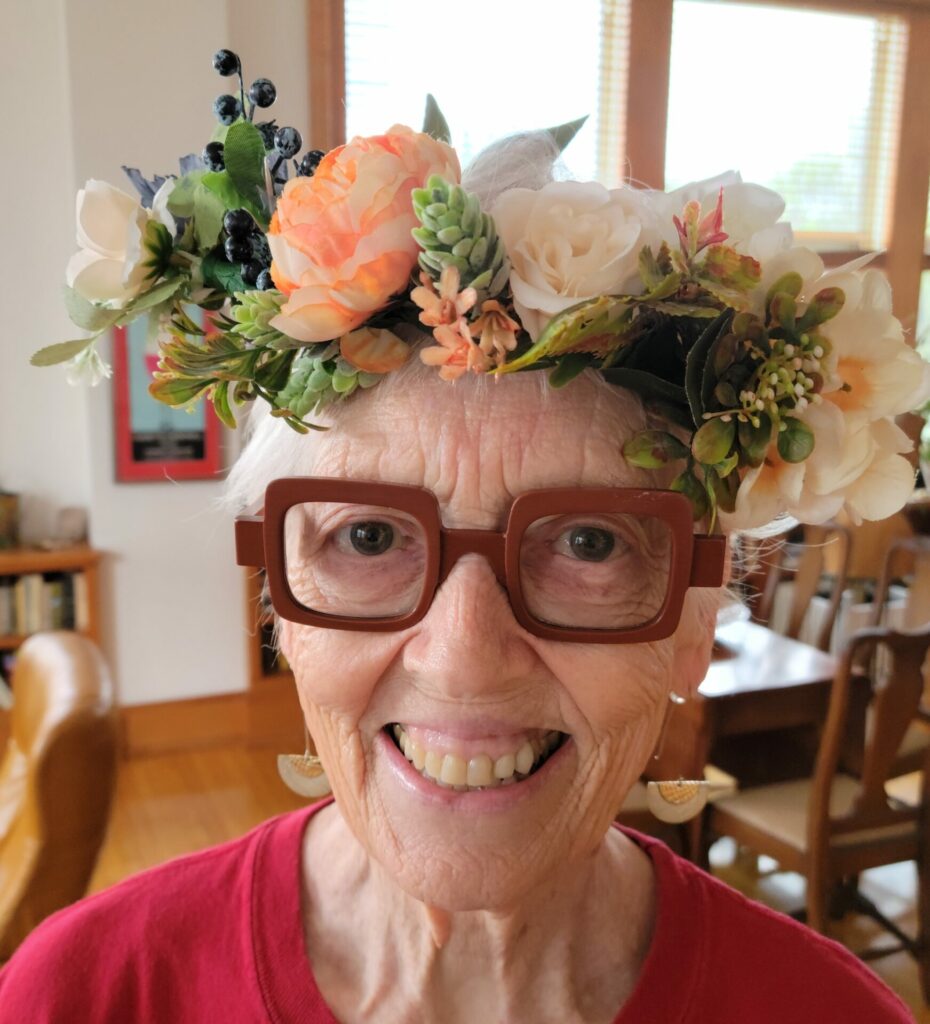
Woman to Woman Peer Mentor Program
Find a trained survivor Mentor to offer one-on-one emotional support and guidance.
A cancer diagnosis can bring up complicated feelings that are often challenging to manage. Remember that you are not alone. Be kind to yourself and reach out if you need help.

Receiving a cancer diagnosis can have a profound emotional impact on you and your loved ones. It is normal to grapple with feelings of distress, anxiety, and depression, along with insomnia and PTSD. Add financial or insurance stressors to the picture, and it’s easy to feel overwhelmed.
Although it’s common to have these reactions, it’s important to remember that you are not alone and to talk to your doctor/healthcare team because some reactions may be a result of the treatment rather than the diagnosis. What may seem like a normal reaction to having cancer may not be. Hormonal changes post-surgery, side effects from chemotherapy and PARP inhibitors can cause insomnia, anxiety, and depression. For this reason, it’s important to track your symptoms and communicate with your doctors.
Remember that managing your mental health is a key part of managing your overall care. This is because mental distress can worsen some of the physical side effects of your treatment — such as fatigue, nausea, sleep problems, and pain.
Be aware, too, that having pre-existing mental health or substance abuse issues, a history of abuse or trauma, or other health conditions puts you at higher risk for developing mental distress.
Whether you consult your hospital team, opt for private counseling, or find community through wide-ranging programs like OCRA’s, support is available as you and your family navigate this challenging time. Learn more about resources for financial and legal assistance here.
Cancer-related mental distress includes anxiety, depression, and/or stress disorders such as PTSD.
Cancer-related mental distress can occur at any time, whether upon diagnosis, during treatment and while dealing with side effects, or even months after treatment ends. In fact, the time after treatment ends can be very fraught for many cancer survivors. Fear of recurrence, fewer check-ups, and less contact with doctors and your healthcare team can translate into feelings of abandonment or being forgotten.
Whatever stage you are at in your cancer journey, you will have different needs at different times. For tips for coping with a cancer diagnosis, read more here.
Depression
Experiencing depression after a cancer diagnosis is not unusual. In fact, 1 in 4 people may experience an episode of clinical depression. Symptoms can range from feeling a loss of pleasure in activities you once enjoyed to a persistent low mood or severe feelings of hopelessness, sadness, emptiness, anger, or irritability. Those with a history of depression are at higher risk. Do speak to your doctors if you are experiencing depression. There are a variety of effective treatments that can help.
Anxiety
There are many different types of anxiety, but if you have received a cancer diagnosis you might have fears of tests or scans, or experience obsessive thoughts about death and/or cancer recurrence. While many people are able to cope on their own, if you find that your anxiety is interfering with your daily life and making it impossible to relax or sit still, seek help. OCRA’s Patient Support line, staffed by a team of licensed professionals, including oncology social workers, is one of the many options available to you.
Insomnia
Insomnia is common during cancer treatment, and can result from medication or chemotherapy side effects or anxiety and depression. Steroids used as part of chemotherapy treatment are known to affect sleep, as can certain antidepressants such as Prozac. Talk to your healthcare team about your sleep problems, and pay attention to your sleep hygiene. Also limit caffeine and alcohol intake, and avoid smoking.
Fortunately, there are actionable steps you can take to manage your distress. Your doctor or healthcare team can help come up with a tailored program that takes into account your specific circumstances, lifestyle, and needs. Treatments for a young adult patient might differ from one for an older patient, for example. Or, you may crave talking with someone who has been through the same journey. The good news is that there are effective ways to alleviate your suffering and improve your day-to-day quality of life.
If you are experiencing mental distress, treatments can include everything from medicines to treat anxiety or depression to hypnosis to manage fear as well as emotional and social support. Oftentimes a combination of the following treatments can be effective:
Remember that you do not have to suffer and that you are not alone. Be sure to try different treatments and don’t give up if they take some time to begin working. It can take some experimenting to find the right combination of treatments that work for your particular situation. Communicate clearly and often with your healthcare team. They are there to help you.
In crisis now? If you need help due to a medical emergency, please call 911 and notify your physician. If you are feeling suicidal or are having an emotional emergency, please call or text the suicide prevention hotline at 988 or visit 988lifeline.org.
Usually talking with loved ones can be therapeutic but when it comes to talking about your cancer diagnosis and treatment, conversations can be challenging, especially when you’re still processing your emotions. You might wonder when and how much to share and how others will react. This video featuring New York Times columnist and author Suleika Jaouad addresses this issue and many more that can be helpful if you are coming to terms with a cancer diagnosis.
Younger Children (Up to Age 8)
When talking with younger children, keep the information simple and straightforward. Children may not have questions immediately, but be prepared to answer them as they arise. Reassure them that they are loved and cared for and involve them in tasks related to your care to help them feel useful.
Older Children and Teenagers
Older children can generally handle more complex information and may ask more detailed questions, but they might still need time to process the news and work through their feelings. There is no single correct way to tell a teenager about a cancer diagnosis, just as there is no right way for them to respond. They may need a mix of support and space to maintain a sense of normalcy.

Find a trained survivor Mentor to offer one-on-one emotional support and guidance.

Join us for weekly or monthly psychoeducational workshops and find a community that offers wisdom, support, and connection.

Many patients find substantial relief through integrative therapies, dietary changes, palliative care, and more.
Get email updates about research news, action alerts, and ways to join the fight.